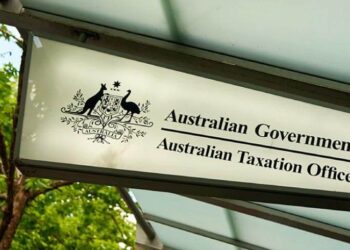Argyle Lawyers managing principal Peter Bobbin says a power of attorney who in part relies on their principal’s, now capped, income stream may face a conflict of interest with the person or persons who are set to inherit the lump sum component
He told SMSF Adviser that if an individual was acting as power of attorney for their mother and their mother’s super fund had a balance of $2 million, the fund would be broken into the $1.6 million pension component and a $400,000 accumulation component.
“Say, mum needs an extra $100,000, do I take it out of the pension money because I’m using up part of the $1.6 million cap and that way I can justify it conceptually because it’s tax free? That would leave the accumulation component intact, the $400,000, and I’m a beneficiary so I want the $400,000 to build up,” Mr Bobbin said.
“Or maybe I do the reverse and I take the money out of the accumulation component because I want to build up the pension money. So I take the money out of the $400,000 component because that’s paying tax and the rest of it isn’t so I keep her pension to the absolute minimum and when she needs extra money, I take it out of the lump sum money.”
Mr Bobbin said if you have got a power of attorney that’s specifically dedicated to a super fund, it can create a potential conflict of interest in terms of how they make a decision because that decision will impact ultimately on what the death benefit may end up being.
“[For example] if mum has a reversionary pension to dad but the lump sum is going to be paid out to the kids, then as a power of attorney holder if I’m dad, or maybe a step-dad, then I may want to actually pay the money out of the accumulation part, not the pension part, because by maximising the pension, I maximise my reversionary pension,” he explained.
“If I’m the child on the other hand, [acting as the power of attorney] then I don’t want this Johnny-come-lately to get the money. So it becomes quite significant where the end benefit in the super fund goes to different people on death [and] the income stream versus whatever the accumulation amount is goes to different people. That’s where it really becomes an issue.”



This is a contrived position. Mum has a $2m block of assets with $1.6m being tax free and the rest preferentially taxed. So previously, all $2m was in the pension and reversionary to Dad. The kids got nix. Why do they now suddenly have something? Just to create a problem? Maybe they should just arrange their affairs properly?
Last I checked, the appointment as an attorney is a fiduciary role and, as such, carries responsibilities to act in the best interest of the appointer. If families are prone to the above described potential behaviour, they will always find ways to act in their own interest. At the end of the day, presumably the appointor has been appropriately advised in the process of executing the EOPA.
This assumes that the assets are segregated. An unsegregated portfolio would spread returns pro rata across both accumulation and pension accounts. There are some other disadvantages of remaining unsegregated, but in my view they are relatively minor and this would be a preferred approach for mum & dad trustees. A bigger problem I see is that most SMSF set up by accountants (unfortunately too often just to get the tax work) get tax and compliance services but little or no investment advice. It seems, based on ASIC reports, that a lot of whatever investment advice is being provided is now coming from an accountant unlicensed to provided this advice.